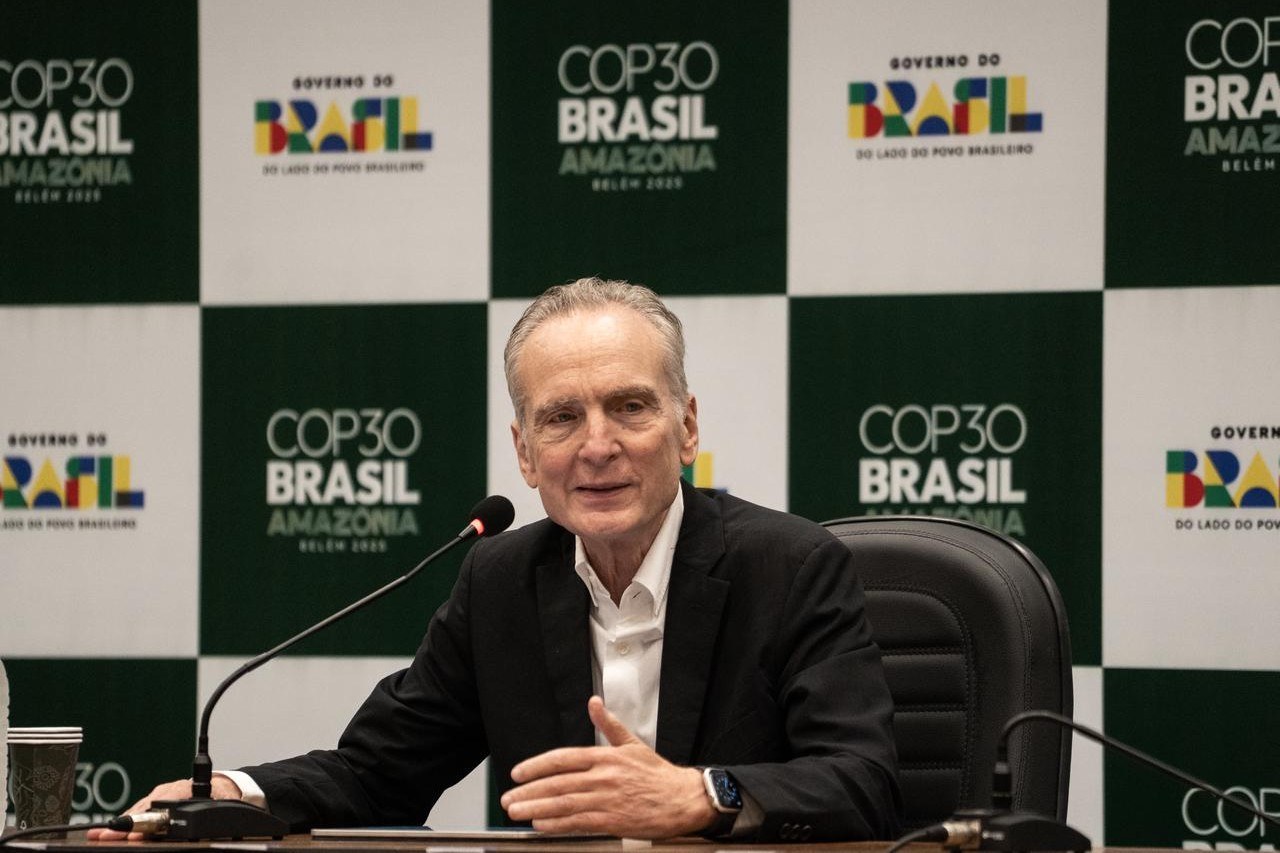COP30 advisor proposes new mechanisms to expand global climate finance
Economist José Alexandre Scheinkman advocates for the TFFF and presents proposals to strengthen adaptation financing in vulnerable countries

By Nicole Angel | COP30
On Tuesday, October 14, during the second day of the Pre-COP in Brasilia, Brazilian economist Dr. José Alexandre Scheinkman, a professor at Columbia University and advisor to COP30, presented proposals to strengthen global climate finance mechanisms. Dr. Scheinkman stressed the importance of the Tropical Forests Forever Fund (TFFF) and innovative adaptation financing methods as critical avenues for aligning the global economy with the climate agenda and facilitating a just transition.
Dr. Scheinkman mentioned the Tropical Forest Carbon Fund (TFCF) as an initiative capable of balancing payments for carbon capture with incentives for forest preservation in tropical countries. He said, “It’s a very good idea because energy capture must be compensated based on the additional carbon absorbed. It's also important that countries with tropical forests — where there are fewer opportunities to capture energy — are recognized.”
According to him, the model could generate direct economic incentives for conservation: “The program of capture and payment for net effect drives Brazil to preserve, as the shadow cost of deforestation rises sharply. It’s an interesting program with great catalytic potential.”
When addressing adaptation financing, Dr. Scheinkman defended innovative and socially just mechanisms capable of protecting populations most exposed to the impacts of global warming. “We are proposing mechanisms that could function like a Bolsa Família-type program, activated only during periods of extreme heat.”
The advisor also emphasized the importance of channeling funds directly to local communities, strengthening their capacity to respond to climate events: “When a climate disaster strikes poorer countries, migration increases and public debt worsens. That’s why we are advocating for the creation of 'debt swap' mechanisms, allowing partial debt forgiveness in exchange for investments in adaptation.”
For Dr. Scheinkman, strengthening climate finance is essential to ensure a just transition, especially in developing countries. The proposals are part of an independent report prepared by an international council of economists, to be presented to the COP30 Presidency.
English version: Trad. Bárbara Menezes.
Proofreading by Enrique Villamil.
